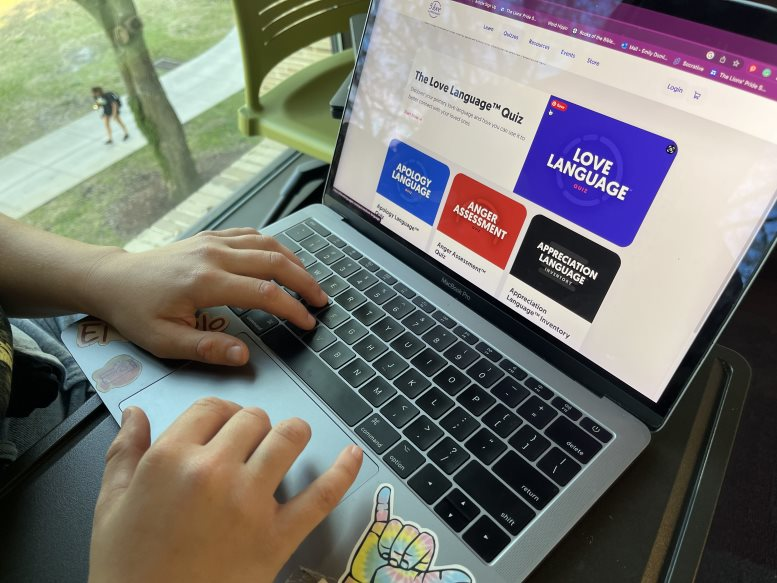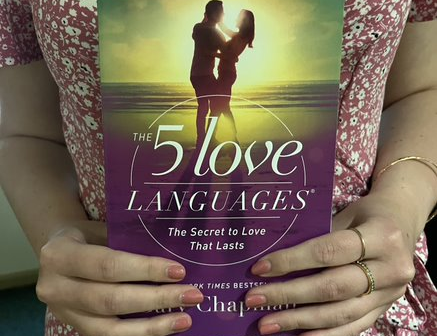By Emily Hernandez Dominguez, Contributing Writer
As February arrives, so does all Valentine’s day merchandise in stores. Love is inevitably in the air. Whether you feel happy at the sight of flowers and stuffed animals or roll your eyes in disgust, love is one of the most important concepts in existence. Psychologists believe that the need to feel loved is a primary human emotional need. We needed love before we ever “fell in love,” and we’ll need it forever.
How love is shown and received is now described as a love language. The idea is that everyone has a primary love language that they respond to the most. The concept was introduced by author, speaker, and counselor Dr. Gary Chapman’s book The 5 Love Languages: The Secret to Love That Lasts. In the book, Chapman reflects on his early encounters with couples during his time as a marriage counselor.

According to Chapman’s research, he says love is given and received in five different ways: words of affirmation, quality time, physical touch, acts of service, and receiving gifts.
“Your emotional love language and the language of your spouse may be different as Chinese from English,” says Chapman. “No matter how hard you try to express love in English, if your spouse understands only Chinese, you will never understand how to love each other. ”
Chapman suggests that knowing the love language of others can help improve relationships significantly. An example would be if one partner likes holding hands (physical touch) and the other does not, or if one partner likes receiving compliments (words of affirmation) and the other doesn’t give them.
Cole Washko, a junior majoring in English, claims his three-and-a-half-year-long relationship has benefited from Chapman’s research even before knowing what love languages are.
“During the talking stage, we discussed those kinds of things, such as what makes each other happy,” Cole says. “We made sure to talk about what makes each other happy and how we communicate.”
After learning his love language is words of affirmation and his girlfriend’s acts of service, Cole believes it helped their relationship. “I think there are times we just get comfortable, but it’s important to remember the best way to make them feel loved,” he states.

Twin sisters Emily and Alicia Luecke both use love languages in different ways. They don’t restrict love languages to just romantic partners- friends and family are also included.
Emily, whose top love languages are physical touch and quality time, uses them to show her friends how much she cares about them.
Emily shares: “A year ago, I would never be cuddly with my friends, but recently, I’ve been hugging my friends more. It’s something that I didn’t know I was missing. Now it’s the highlight of my friendships, and quality time is so important to me too. It helps me bond with my friends more.”
Similarly, her sister, Alicia, has a love language of physical touch. Coincidentally, her boyfriend has the same one and enjoys words of affirmation too. Early on, knowing each other’s love languages and having similar ones helped build a strong foundation. “Once we had a conversation about it, we started holding hands more, and I’ve included more affirmations in conversations.”
Remembering when you’re with your partner, friend, or family member, it’s essential to remember to speak their love language. The official quiz can be found on the love language website to identify your love language. You can take a test for romance, family, friends, and co-workers.
Although there are five official love languages, Chapman reminds everyone that the number of ways to express love within a love language is limited only by your imagination.





